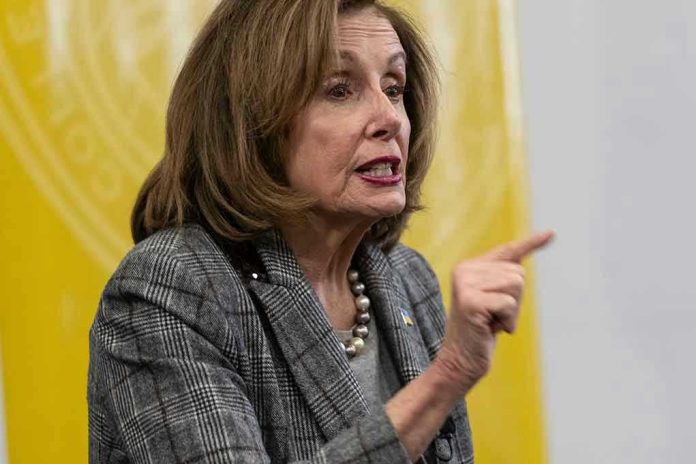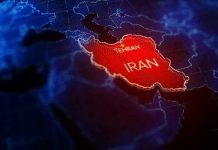
American politics has rarely seen a moment as raw and combustible as Nancy Pelosi publicly branding Donald Trump “the worst thing on the face of the Earth”—a phrase that now echoes through the halls of power and the minds of millions on the eve of the 2025 election.
Story Snapshot
- Nancy Pelosi’s scathing remarks about Donald Trump on CNN reignited partisan anger just before the 2025 election.
- Pelosi’s language—calling Trump a “vile creature”—is a rare escalation for a senior stateswoman.
- The controversy underscores deeper anxieties about American democracy, nuclear policy, and Senate rules.
- Both parties are leveraging this rhetorical firestorm to mobilize voters and control the national narrative.
Pelosi’s Verbal Broadside Shakes the Political Establishment
During a televised CNN interview, Nancy Pelosi, former Speaker of the House and a towering figure in Democratic politics, unleashed a verbal assault on Donald Trump so unprecedented that even seasoned Beltway insiders paused. She labeled Trump a “vile creature” and “the worst thing on the face of the Earth,” laying bare an animosity that has simmered since his first campaign. Pelosi didn’t stop at name-calling; she accused Trump of trampling on the Constitution and undermining the very institutions—like the Supreme Court and the free press—that underpin American democracy. The timing, coming just days before the 2025 elections, set off a political earthquake, with both Democratic and Republican operatives rushing to shape the narrative and energize their bases.
Within hours, news outlets and social media channels exploded with reactions. Democrats hailed Pelosi’s candor as a necessary wake-up call, while Republicans decried her remarks as proof of elite disdain for ordinary Americans. As the exchange ricocheted through cable news, political strategists on both sides recognized the stakes: with control of Congress and the presidency on the line, every word carried the weight of history.
The Collision of History and High Stakes
Pulled by decades of bitter rivalry, Pelosi and Trump have clashed over everything from government shutdowns to impeachment. Their feud has become emblematic of a deeper struggle over the soul of American governance. This latest eruption arrived during a moment of existential anxiety for the republic: debates over the so-called “nuclear option” in the Senate, worries about Trump’s ambiguous comments on nuclear weapons testing, and a sense that the guardrails of democracy are being tested as never before. Pelosi’s invocation of the Founders’ vision, juxtaposed with Trump’s hardball approach to executive power, highlights just how far the Overton window has shifted. For readers wondering if this is all just political theater, experts insist that the rhetoric reflects genuine concern about constitutional erosion and institutional fragility.
Past confrontations between Pelosi and Trump—impeachment proceedings, public snubs, and legislative standoffs—created a combustible backdrop for this moment. Yet, the language Pelosi chose this time was more incendiary than ever, signaling not only personal animus but also institutional alarm. As she referenced Thomas Jefferson’s ideals, Pelosi framed the election as a crossroads for the republic—a battle not just for policy, but for the meaning of American democracy itself.
Ripple Effects: Voter Mobilization and Institutional Anxiety
Pelosi’s remarks quickly became fodder for campaign ads, fundraising emails, and social media volleys. Democratic leaders seized on her language to warn of dire consequences should Trump return to power, urging voters to see the election as a last stand for constitutional government. Republican operatives, in turn, dismissed the attacks as overblown and used them to galvanize their own supporters against what they see as an entrenched political class. The controversy has intensified an already feverish political environment, with analysts warning that the escalation in rhetoric may further erode the norms of civil discourse.
Beyond the immediate political circus, the episode has real-world implications. Partisan gridlock in Congress, the threat of government shutdowns, and ongoing debates over Senate procedures all feed into a sense of institutional paralysis. Experts on Senate rules caution that calls for the “nuclear option” risk undermining minority rights and destabilizing legislative checks and balances. Meanwhile, national security analysts express alarm at Trump’s ambiguous nuclear policy statements, warning of potential global ripple effects. For Americans already weary of political combat, the spectacle has become both exhausting and impossible to ignore.
Expert Warnings and the Road Ahead
Policy scholars and political scientists are nearly unanimous in their view that Pelosi’s remarks mark a new phase in the rhetorical arms race gripping Washington. Defense experts, alarmed by Trump’s nuclear testing comments, urge clarity and restraint to prevent an international crisis. Senate procedure specialists warn that abandoning filibuster norms could accelerate legislative dysfunction, making it harder for Congress to perform its basic functions. For all the partisan bluster, independent voices stress the urgent need for institutional resilience and a return to reasoned debate.
As the 2025 election approaches, Pelosi’s words serve as both a rallying cry and a cautionary tale. The next chapter in this saga remains unwritten, but the tremors from her “nuclear” moment will reverberate long after the ballots are counted. The stakes, as both parties are eager to remind us, have rarely felt higher.
Sources:
WSET: Will Trump Actually Test Nuclear Weapons? Experts Are Disturbed and Urge Clarification
Fox Reno: Fact Check Team: Trump Urges ‘Nuclear Option’ to End Government Shutdown









